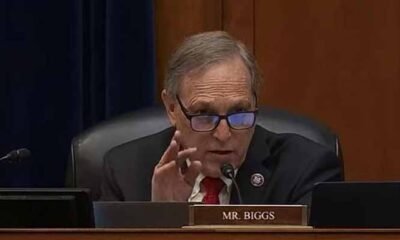Carine Werner
Arizona Strengthens Fight Against Deadly Synthetic Opioids with New Bipartisan Legislation

By Jonathan Eberle |
In a significant bipartisan effort, Arizona lawmakers have enacted legislation to combat the alarming rise of synthetic opioids in the state. SB 1622, championed by State Senator Carine Werner (R-LD4), chair of the Senate Health & Human Services Committee, was signed into law earlier this week.
The new law classifies eight synthetic opioids, including the potent protonitazene, as controlled substances. This aligns Arizona’s regulations with federal drug standards. Initially developed in the 1950s without medical approval, these nitazene compounds are increasingly found in counterfeit pills and illicit drugs across the nation.
Under SB 1622, individuals caught possessing, manufacturing, or distributing these opioids may face felony charges ranging from class 4 to class 2. In heightened circumstances, such as sales near schools or cases leading to fatal overdoses, harsher penalties and mandatory prison sentences apply. The law will take effect 90 days after the legislative session concludes.
Nitazenes are emerging as a formidable class of synthetic opioids, appearing in drug busts and autopsies nationwide. Unlike fentanyl, which is legally produced for clinical use, nitazenes are manufactured illegally and carry significant lethality, often hundreds of times more potent than morphine.
The U.S. Drug Enforcement Administration (DEA) has raised alarms regarding nitazenes since 2021 due to a notable increase in overdose deaths connected to these substances being found in counterfeit pain medications and recreational drugs.
Data from the CDC indicates that synthetic opioids, predominately fentanyl and its variants, caused nearly 75% of all drug overdose fatalities in the U.S. in 2022. Public health experts warn that nitazenes are poised to become the next critical threat in the opioid crisis.
SB 1622 received broad support from both legislative chambers, with members acknowledging the pressing need to address changing drug trends.


















